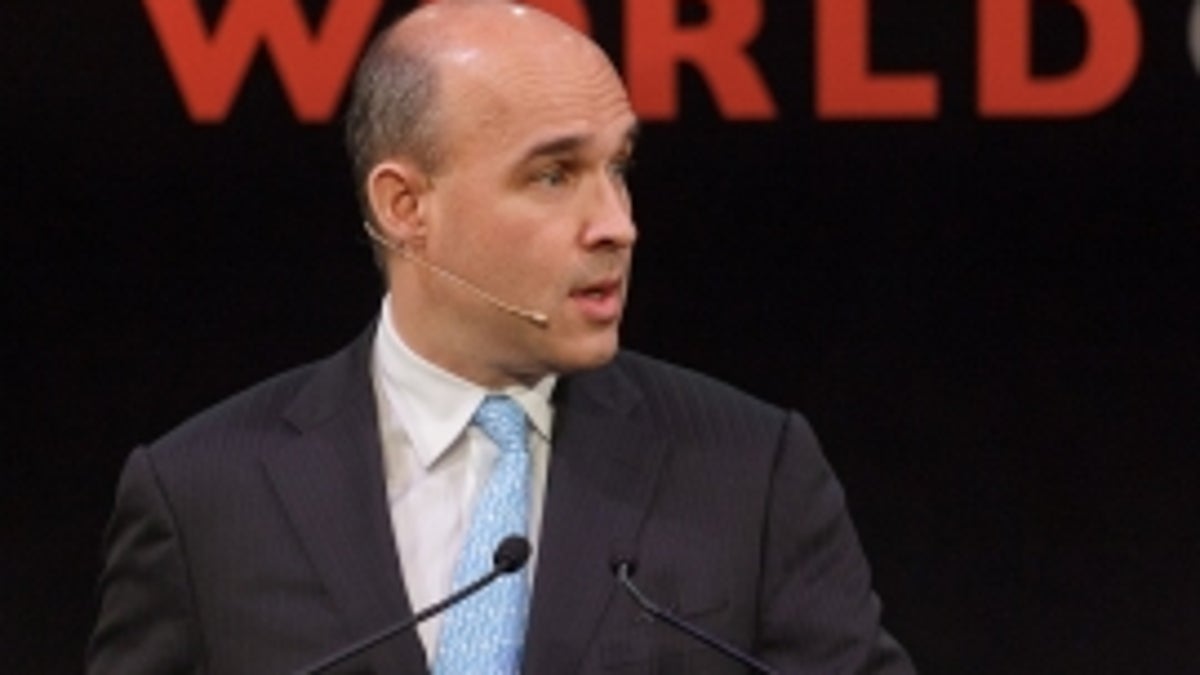RIM's Balsillie had radical plan to save company, report says
The former co-CEO and co-chairman apparently wanted to offer his company's network to carriers in the U.S. and elsewhere to boost the BlackBerry maker's financials.

Research In Motion has decided to double down on its devices and the upcoming BlackBerry 10. But according to a new report, its former co-CEO and co-chairman had other ideas before he left the company in January.
According to Reuters, citing sources, Jim Balsillie held talks with North American and European carriers prior to his departure from RIM, offering them access to his company's proprietary network. If they had inked a deal, the carriers would have been allowed to route traffic from non-RIM smartphones through the BlackBerry maker's network for a fee. The move, Balsillie reportedly believed, would help RIM generate far more revenue, and benefit carriers that are looking to reduce some of the load smartphones are putting on their networks.
If RIM and Balsillie had been able to come to a deal, it might have been music to investors' ears. For months now, major investors have been calling on RIM to focus its efforts on its services and network and consider ditching its hardware business. They ostensibly believe that RIM can't keep up with Apple, Samsung, and countless other smartphone vendors in the hardware market, but could make a mark in services.
According to Reuters, however, those who hold the power at RIM, including current CEO Thorsten Heins, don't agree. And while Balsillie was in discussions with AT&T and Verizon in the U.S. and several carriers in Europe, Heins and former co-CEO Mike Lazaridis nixed his idea, deciding instead to focus on BlackBerry 10 devices, according to the news services' sources.
Although Balsillie reportedly wanted to offer access to RIM's network, he wasn't willing to hand over full access. Smartphone owners would have been able to place calls, send text messages, and use data services, but they would have only been able to access a few services, like Facebook and Twitter; much of the rest of the Web would have not been accessible.
RIM's network has been used exclusively for BlackBerry services since its inception, and for the most part, it has delivered an experience that customers are after. However, last year, RIM suffered an embarrassing multiday network outage that left e-mail services and BlackBerry Messenger offline. Whether that outage played a role in any of the negotiations Balsillie was engaging in is unknown.
Still, it's clear that Balsillie, like others who follow RIM, knew that something drastic needs to be done to fix the company. RIM announced last month that during the fiscal fourth quarter, it lost $125 million, down from the $934 million profit it generated in the prior year. Most troubling, RIM said that BlackBerry shipments fell to 11.1 million units during the period, dropping 80 percent year-over-year.
Looking ahead, Heins says that his company needs to make a "substantial change." Evidently, that change will not come byway of leveraging the BlackBerry network.
RIM did not immediately respond to CNET's request for comment on the Reuters report.

